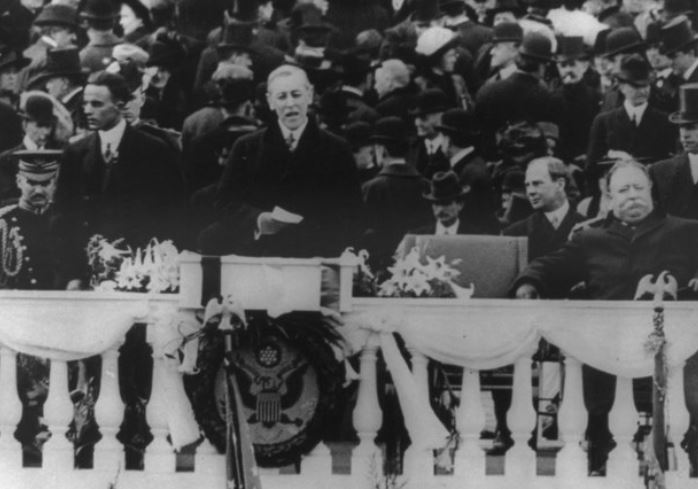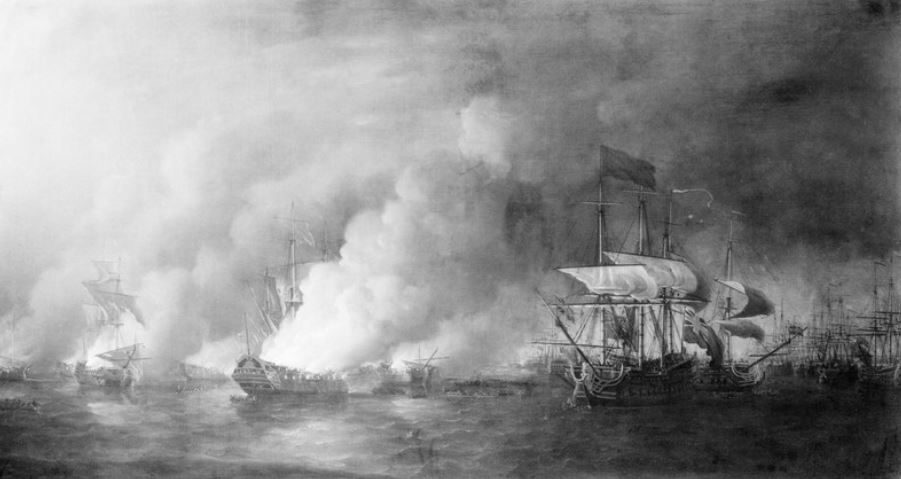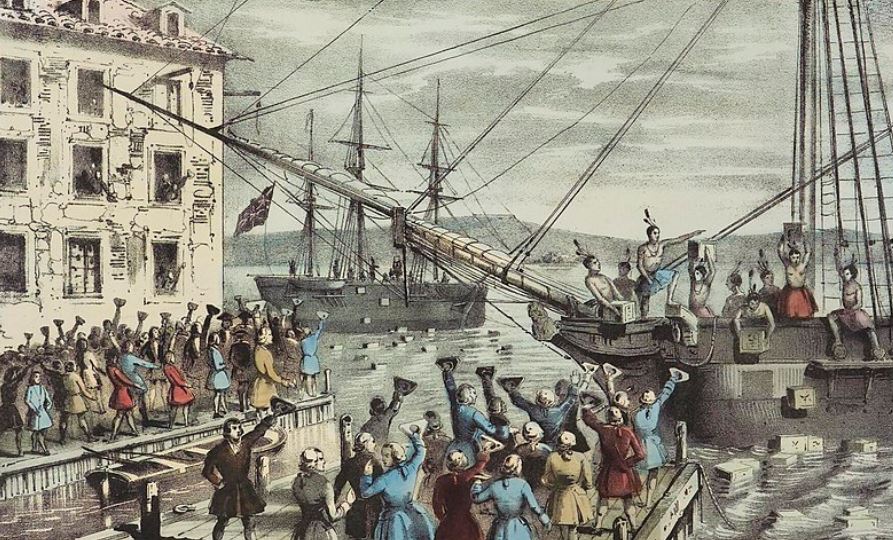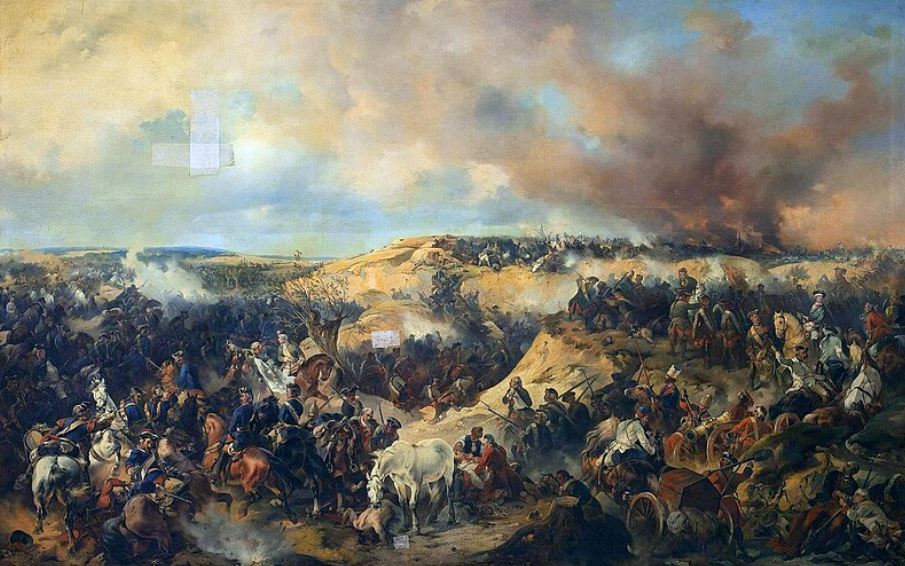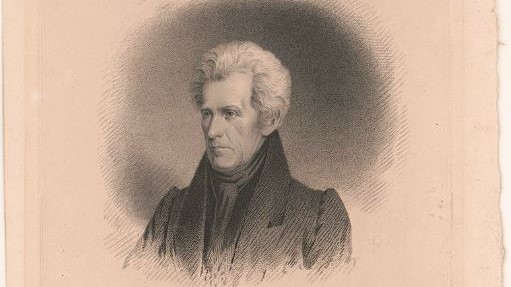Woodrow Wilson, the 28th President of the United States, is a figure who continues to spark debate among historians, politicians, and the public.
On one hand, he is celebrated for his progressive reforms and his role in shaping the post-World War I world order. On the other, his presidency is marred by racism, authoritarianism, and violations of civil liberties.
This raises the question: Was Woodrow Wilson the worst U.S. president? To answer this, we must examine the darker aspects of his legacy while also considering the counterfactual—why some, particularly in Central Europe, still view him as a hero.
- Woodrow Wilson's Racism and Segregation
- Woodrow Wilson's Civil Liberties Violations
- Woodrow Wilson's Foreign Interventions
- The Counterfactual – Why Woodrow Wilson Isn’t Universally Hated
- Weighing the Good Against the Bad
- Historical Comparisons
- Final Thoughts: Was Woodrow Wilson the Worst President?
- Further Reading
Woodrow Wilson‘s Racism and Segregation
Woodrow Wilson’s presidency marked a devastating setback for racial equality in the United States.
A Southerner by upbringing, Wilson carried deeply ingrained racist views that profoundly influenced his policies and actions. His administration systematically dismantled decades of progress for Black Americans, reinforcing segregation and inequality at the federal level.
Here’s a closer look at how Wilson’s racism manifested during his presidency:
Resegregation of Federal Offices
One of Wilson’s first acts as president was to resegregate federal offices, a move that reversed the progress made during Reconstruction and the early 20th century.
Before Wilson, federal workplaces were among the few spaces where Black Americans could find relatively stable employment and even advance to managerial positions. Under Wilson, this changed dramatically:
- Demotions and Firings: Black employees were demoted or outright fired, often replaced by white workers.
- Segregated Workspaces: Black workers who remained were forced into segregated offices, bathrooms, and cafeterias.
- Economic Harm: These policies had real, lasting consequences for Black families, many of whom lost their livelihoods or saw their career prospects severely limited.
This wasn’t just a symbolic gesture—it was a deliberate effort to marginalize Black Americans and reinforce white supremacy within the federal government.
Endorsement of Birth of a Nation
Wilson’s racism extended beyond policy decisions. In 1915, he screened the film Birth of a Nation at the White House, a movie that glorified the Ku Klux Klan and portrayed Black Americans as dangerous and inferior.
The film, based on a novel by Thomas Dixon, a close friend of Wilson’s, was a piece of propaganda that romanticized the Klan as heroes protecting white Southerners during Reconstruction.
- Impact of the Film: Birth of a Nation was a cultural phenomenon, seen by millions of Americans and praised for its technical achievements. However, its message was deeply harmful, perpetuating racist stereotypes and justifying violence against Black communities.
- Resurgence of the Klan: Wilson’s endorsement of the film helped legitimize the Klan, which experienced a dramatic resurgence during his presidency. By the 1920s, the Klan had millions of members and wielded significant political influence, leading to increased violence, intimidation, and lynchings targeting Black Americans.
Wilson’s actions weren’t a reflection of the times—they actively reinforced systemic racism and emboldened white supremacist groups.
Woodrow Wilson’s Personal Views on Race
Wilson’s racism wasn’t limited to policy or symbolic gestures; it was deeply personal. He believed in the inferiority of Black people and supported the idea of racial segregation as a “benefit” to both races.
In 1914, when a delegation of Black leaders met with him to protest the segregation of federal offices, Wilson dismissed their concerns, stating that segregation was “not humiliating but a benefit.” He even went so far as to tell the delegation’s leader that he would not meet with them again unless they chose a different spokesperson—a clear display of his disdain for Black leadership.
The Lost Cause and Reconstruction
Wilson’s views on race were also shaped by his upbringing in the post-Civil War South. He was a staunch believer in the “Lost Cause” narrative, which romanticized the Confederacy and portrayed Reconstruction as a period of corruption and chaos.
In his writings, Wilson described newly freed Black Americans as “idlers” who posed a threat to white society, perpetuating the myth that they were incapable of self-governance. This narrative not only justified segregation but also influenced his policies, which sought to roll back the gains made by Black Americans during Reconstruction.
Long-Term Consequences
The effects of Wilson’s racist policies were far-reaching:
- Economic Disenfranchisement: Black federal employees lost their jobs or were relegated to lower-paying, menial positions.
- Cultural Harm: The resurgence of the Klan and the popularity of Birth of a Nation perpetuated racist stereotypes and normalized violence against Black communities.
- Institutional Racism: Wilson’s actions set a precedent for further segregation and discrimination in federal and state governments, contributing to the systemic racism that persists today.
For many, Wilson’s presidency represents a dark chapter in American history—one in which the federal government actively worked to undermine racial equality rather than promote it. His actions were a deliberate reinforcement of white supremacy that had lasting consequences for Black Americans.
Woodrow Wilson‘s Civil Liberties Violations
Woodrow Wilson’s presidency was marked by a severe crackdown on civil liberties, particularly during World War I.
In the name of national security, his administration enacted laws and policies that stifled free speech, targeted dissenters, and fostered an atmosphere of fear and repression.
These actions not only undermined the constitutional rights of Americans but also set dangerous precedents for the expansion of government power.
Here’s a closer look at how Wilson’s administration violated civil liberties:
The Espionage Act of 1917 and the Sedition Act of 1918
During World War I, Wilson’s administration passed two of the most repressive laws in U.S. history: the Espionage Act of 1917 and the Sedition Act of 1918. These laws were ostensibly designed to protect national security, but in practice, they were used to silence critics of the government and the war effort.
- Criminalizing Dissent: The Espionage Act made it a crime to interfere with military operations or recruitment, while the Sedition Act expanded this to include any speech or expression deemed “disloyal” or “insubordinate.”
- Prosecutions: Over 1,500 Americans were prosecuted under these laws, including socialist leader Eugene Debs, who was sentenced to 10 years in prison for speaking out against the draft. Debs, who ran for president from prison in 1920, became a symbol of the government’s overreach.
- Impact on Free Speech: These laws created a chilling effect, discouraging Americans from expressing their opinions or criticizing the government.
The Espionage and Sedition Acts represented a blatant violation of the First Amendment, setting a troubling precedent for the suppression of free speech during times of crisis.
Censorship and the Post Office
The Wilson administration granted the Post Office sweeping powers to censor mail and newspapers, further stifling free expression.
Postmaster General Albert Burleson, a staunch Wilson ally, used these powers to target publications and individuals deemed unpatriotic or critical of the war.
- Suppressing the Press: Newspapers and magazines that opposed the war or criticized the government were denied mailing privileges, effectively shutting them down. Socialist and anti-war publications were particularly targeted.
- Mail Surveillance: The Post Office also monitored private correspondence, opening and reading letters to identify dissenters. This invasion of privacy created an atmosphere of suspicion and fear.
These actions violated the First Amendment but also eroded public trust in the government and the press.
Discrimination Against German Americans
Wilson’s policies also fueled xenophobic violence and discrimination, particularly against German Americans.
As the U.S. entered World War I, anti-German sentiment reached a fever pitch, and German Americans became scapegoats for the nation’s anxieties.
- Job Losses: Many German Americans were fired from their jobs, particularly in industries with ties to the war effort. Employers often viewed them as potential traitors or spies.
- Language Bans: Some states banned the use of the German language in schools, public spaces, and even churches. German-language newspapers were shut down, and German books were removed from libraries.
- Violence: In one tragic case, a German American man named Robert Prager was lynched by a mob in Illinois in 1918. Prager, a coal miner, was accused of being a spy, though there was no evidence to support the claim. His murder highlighted the extent of anti-German hysteria during the war.
Wilson did little to curb this xenophobic violence, and his administration’s rhetoric often exacerbated the problem. By portraying the war as a moral crusade against German “barbarism,” Wilson contributed to the dehumanization of German Americans and the erosion of their civil rights.
The Creation of a Climate of Fear
The combination of repressive laws, censorship, and xenophobic violence created a climate of fear and repression during Wilson’s presidency. Americans were afraid to speak out, criticize the government, or even express their cultural heritage.
Wilson’s civil liberties violations remain one of the most troubling aspects of his presidency. While his administration justified these actions as necessary for national security, they represented a profound betrayal of the principles of free speech, press freedom, and equal protection under the law. The legacy of this repression is a reminder of the dangers of sacrificing civil liberties in the name of fear or war.
Authoritarian Tendencies
Wilson’s presidency was marked by a centralization of power in the executive branch. He often acted unilaterally, disregarding constitutional norms and the checks and balances of government. For example, he nationalized key industries during World War I, including railroads and telephone networks, and created numerous federal agencies to control various aspects of public life.
While some of these measures were justified by the war effort, they set a precedent for expanded executive power that many found troubling.
Wilson’s refusal to compromise was another hallmark of his authoritarian tendencies.
When the U.S. Senate opposed his vision for the League of Nations, he embarked on a nationwide speaking tour to rally public support. This grueling schedule led to a debilitating stroke, after which his wife, Edith Wilson, effectively ran the government in his stead.
His inability to negotiate or accept alternative viewpoints ultimately doomed the League of Nations in the United States.
Woodrow Wilson‘s Foreign Interventions
Woodrow Wilson’s foreign policy was characterized by a mix of idealism and interventionism, often justified as spreading democracy and American values.
However, his actions in Latin America and beyond frequently resulted in long-term instability, resentment, and unintended consequences.
Wilson’s interventions were marked by a paternalistic attitude, with the U.S. positioning itself as a moral arbiter while disregarding the sovereignty and aspirations of the nations it sought to “help.”
Here’s a closer look at the key aspects of Wilson’s foreign interventions:
Occupation of Haiti (1915–1934)
One of the most controversial aspects of Wilson’s foreign policy was the U.S. occupation of Haiti, which began in 1915 and lasted nearly two decades. Wilson justified the intervention as a means to stabilize the country and promote democracy, but the reality was far more complex—and damaging.
- Justification for Invasion: The U.S. invaded Haiti under the pretext of protecting American business interests and restoring order after the assassination of Haitian President Vilbrun Guillaume Sam.
- Forced Treaty: The U.S. imposed a treaty on Haiti that gave American officials control over the country’s finances, police, and infrastructure. This treaty was ratified under duress, with U.S. Marines occupying the Haitian parliament to ensure its passage.
- Resistance and Repression: The occupation faced fierce resistance from Haitian citizens, who viewed it as a violation of their sovereignty. The U.S. responded with brutal force, including the killing of thousands of Haitians and the suppression of uprisings.
- Long-Term Consequences: The occupation left Haiti politically and economically destabilized, with a legacy of resentment toward the U.S. that persists to this day.
Wilson’s intervention in Haiti was emblematic of his paternalistic approach to foreign policy, which prioritized American interests over the self-determination of other nations.
Occupation of the Dominican Republic (1916–1924)
Similarly, Wilson ordered the occupation of the Dominican Republic in 1916, citing the need to restore order and protect American interests. Like the Haitian occupation, this intervention had devastating consequences for the Dominican people.
- Military Rule: The U.S. established a military government that took control of the country’s finances, infrastructure, and public services. Dominican institutions were dismantled, and local leaders were sidelined.
- Resistance and Repression: As in Haiti, the occupation faced widespread resistance. The U.S. military responded with force, including the use of aerial bombings to suppress rebellions.
- Economic Exploitation: The occupation prioritized American economic interests, particularly in the sugar industry, at the expense of Dominican workers and farmers.
- Legacy of Instability: The U.S. withdrawal in 1924 left the Dominican Republic politically fractured and economically dependent, setting the stage for decades of authoritarian rule.
Wilson’s intervention in the Dominican Republic further underscored the contradictions in his foreign policy: while he championed self-determination on the global stage, his actions in Latin America often undermined it.
Intervention in Mexico
Wilson’s interventions in Mexico were equally problematic, marked by a combination of idealism and heavy-handedness. His actions in Mexico strained U.S.-Mexican relations and failed to achieve their stated objectives.
- Invasion of Veracruz (1914): Wilson ordered the invasion of Veracruz in response to the arrest of American sailors by Mexican forces. The occupation lasted seven months and resulted in hundreds of Mexican casualties. While Wilson claimed the intervention was meant to promote democracy, it was widely seen as an act of aggression.
- Punitive Expedition (1916–1917): After Mexican revolutionary Pancho Villa launched a raid on the town of Columbus, New Mexico, Wilson sent General John J. Pershing and thousands of U.S. troops into Mexico to capture Villa. The expedition lasted nearly a year and failed to achieve its objective, further straining relations with Mexico.
- Impact on Mexican Sovereignty: Wilson’s interventions in Mexico were seen as a violation of Mexican sovereignty and fueled anti-American sentiment. They also complicated Mexico’s ongoing revolution, undermining efforts to establish stability and democracy.
Paternalism and the Spread of “American Values”
Wilson’s foreign interventions were often justified as part of a broader mission to spread democracy and American values. However, this rhetoric masked a deeply paternalistic approach that disregarded the agency and aspirations of the people in the countries he sought to “help.”
- Moral Superiority: Wilson viewed the U.S. as a moral leader with a duty to guide less “civilized” nations. This attitude was rooted in the racist and imperialist ideologies of the time.
- Failure to Achieve Objectives: Despite his lofty goals, Wilson’s interventions often resulted in chaos, resentment, and long-term instability. Rather than promoting democracy, they frequently entrenched authoritarianism and economic exploitation.
- Contradictions with Self-Determination: Wilson’s advocacy for self-determination at the Paris Peace Conference stood in stark contrast to his actions in Latin America, where he undermined the sovereignty of nations like Haiti and the Dominican Republic. Wilson’s interventions fueled anti-American sentiment in Latin America, which persisted for decades and shaped regional politics.
The Counterfactual – Why Woodrow Wilson Isn’t Universally Hated
While Woodrow Wilson’s domestic policies and foreign interventions have drawn significant criticism, his legacy is not universally negative.
In fact, in certain parts of the world—particularly Central Europe—Wilson is celebrated as a hero.
Additionally, his presidency saw significant domestic reforms and leadership during World War I that continue to shape the United States and the world. Here’s a closer look at why Wilson isn’t universally hated and why some still view him positively:
Positive Reception in Central Europe
Wilson’s most enduring legacy outside the United States lies in his role in shaping the post-World War I world order.
His Fourteen Points, a set of principles for peace, advocated for self-determination and the breakup of empires like Austria-Hungary and the Ottoman Empire. This vision resonated deeply with people in Central Europe, who saw Wilson as a champion of their independence and freedom.
- Self-Determination: Wilson’s call for self-determination gave hope to nations like Czechoslovakia, Poland, and Yugoslavia, which had long been under the control of imperial powers. His advocacy helped these nations gain independence and establish their own governments after the war.
- Cultural Impact: Wilson’s influence is still visible in Central Europe today. Streets, bridges, and landmarks bear his name as a testament to his impact. For example, Wilsonova Street in Prague runs by the main train station, and a statue of Wilson once stood in the city (though it was removed during the Communist era).
- Symbol of Liberation: For many in Central Europe, Wilson remains a symbol of hope and liberation. His vision of a world based on democracy and national sovereignty inspired generations of leaders and citizens in the region.
Wilson’s international reputation stands in stark contrast to his domestic legacy, highlighting the complexity of his presidency. While he is criticized for his racism and authoritarianism at home, he is celebrated abroad for his role in reshaping the global order.
Progressive Domestic Reforms
Wilson’s presidency also saw significant domestic achievements that modernized the United States and improved the lives of many Americans. While these reforms were not without flaws, they represented important steps forward in areas like economic policy and workers’ rights.
- Establishment of the Federal Reserve: One of Wilson’s most enduring legacies is the creation of the Federal Reserve System in 1913. This central banking system helped stabilize the U.S. economy, regulate monetary policy, and prevent financial panics. Today, the Federal Reserve remains a cornerstone of the U.S. financial system.
- Introduction of the Federal Income Tax: Wilson championed the 16th Amendment, which established a permanent federal income tax. This provided a stable source of revenue for the government and helped fund critical programs and infrastructure projects.
- Workers’ Rights: Wilson supported progressive labor reforms, including the 8-hour workday and measures to combat child labor. While these reforms were not universally applied—particularly to Black workers—they represented important steps toward improving labor conditions and protecting workers’ rights.
These domestic achievements demonstrate Wilson’s ability to enact meaningful change, even as his presidency was marred by significant failures in other areas.
World War I Leadership
Wilson’s leadership during World War I further complicates his legacy. While his domestic policies and foreign interventions have drawn criticism, his role in the war and its aftermath earned him international acclaim and solidified his place in history.
- Initial Neutrality: Wilson’s initial stance of neutrality during World War I was popular with American voters, who were wary of being drawn into a distant conflict. His campaign slogan, “He kept us out of war,” helped him win re-election in 1916.
- Entry into the War: When the U.S. eventually entered the war in 1917, Wilson framed it as a moral crusade to “make the world safe for democracy.” His leadership helped mobilize the nation’s resources and played a key role in securing an Allied victory.
- Vision for Peace: Wilson’s Fourteen Points outlined a vision for a post-war world based on self-determination, open diplomacy, and the creation of a League of Nations to prevent future conflicts. While the U.S. Senate ultimately rejected the League, Wilson’s ideas influenced the Treaty of Versailles and laid the groundwork for international organizations like the United Nations.
Wilson’s leadership during World War I and his vision for a peaceful world order earned him widespread admiration, even as his domestic policies and foreign interventions drew criticism.
Weighing the Good Against the Bad
The question of whether Wilson deserves to be celebrated or condemned ultimately depends on how one weighs his achievements against his failures. His domestic reforms and international leadership were undeniably significant, but they cannot erase the harm caused by his racism, civil liberties violations, and paternalistic foreign interventions.
- A Complicated Legacy: Wilson’s presidency is a study in contrasts. He was a progressive reformer who modernized the U.S. economy and championed workers’ rights, but he was also a deeply flawed leader whose policies perpetuated racial inequality and undermined civil liberties.
- International vs. Domestic Reputation: While Wilson is celebrated in Central Europe for his role in promoting self-determination, his domestic legacy is far more troubling. This dichotomy highlights the complexity of his presidency and the challenges of evaluating historical figures.
- A Cautionary Tale: Wilson’s legacy serves as a reminder that even leaders who achieve great things can leave behind a legacy of harm. It underscores the importance of critically examining historical figures and acknowledging both their accomplishments and their failures.
By exploring the counterfactual aspects of Wilson’s presidency, this section highlights why he isn’t universally hated and why some still view him positively. It also underscores the complexity of his legacy, which is marked by both significant achievements and profound failures. Wilson’s presidency remains a subject of debate, challenging us to grapple with the contradictions of history and the enduring impact of leadership.
Historical Comparisons
To fully assess Wilson’s legacy, it’s helpful to compare him to other controversial presidents.
James Buchanan, for example, is often cited as the worst president for his failure to prevent the Civil War.
Andrew Jackson’s treatment of Native Americans and his support for slavery also make him a strong contender for the title.
Wilson’s legacy is increasingly being reevaluated in light of his racism and civil liberties violations. While he may have once been ranked among the top presidents by historians, there is a growing recognition of the harm caused by his policies and a broader effort to critically examine the legacies of historical figures.
Final Thoughts: Was Woodrow Wilson the Worst President?
Woodrow Wilson’s presidency is a study in contrasts. He was a progressive reformer who expanded the role of the federal government and championed international peace, but he was also a deeply flawed individual whose policies perpetuated racial inequality and undermined civil liberties.
While he is celebrated in Central Europe for his role in shaping the post-WWI world, his domestic legacy is far more troubling.
Was Wilson the worst U.S. president? The answer depends on how one balances his achievements against his failures. What is clear, however, is that his presidency serves as a reminder of the complexities of historical figures and the importance of examining both their accomplishments and their shortcomings.
Wilson’s legacy is not one of unqualified greatness but of a leader who achieved much—and caused much harm—in equal measure.
Further Reading
If you enjoyed this article, you may enjoy these:

